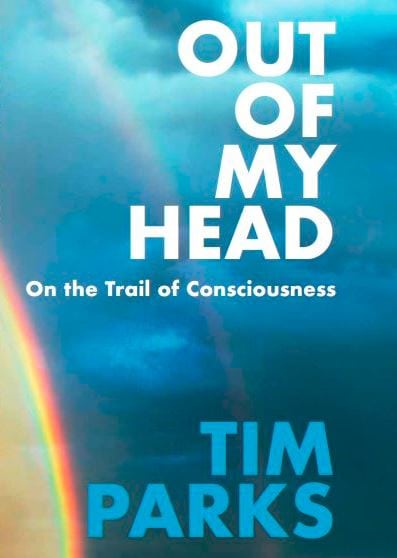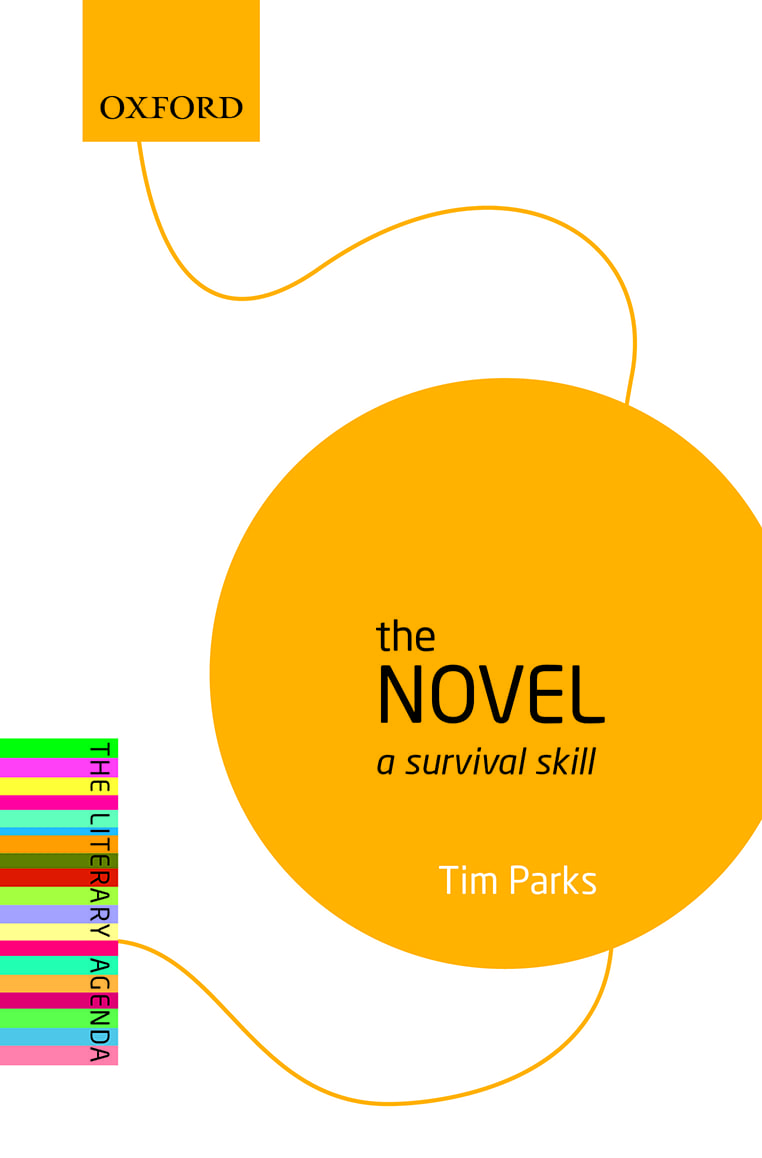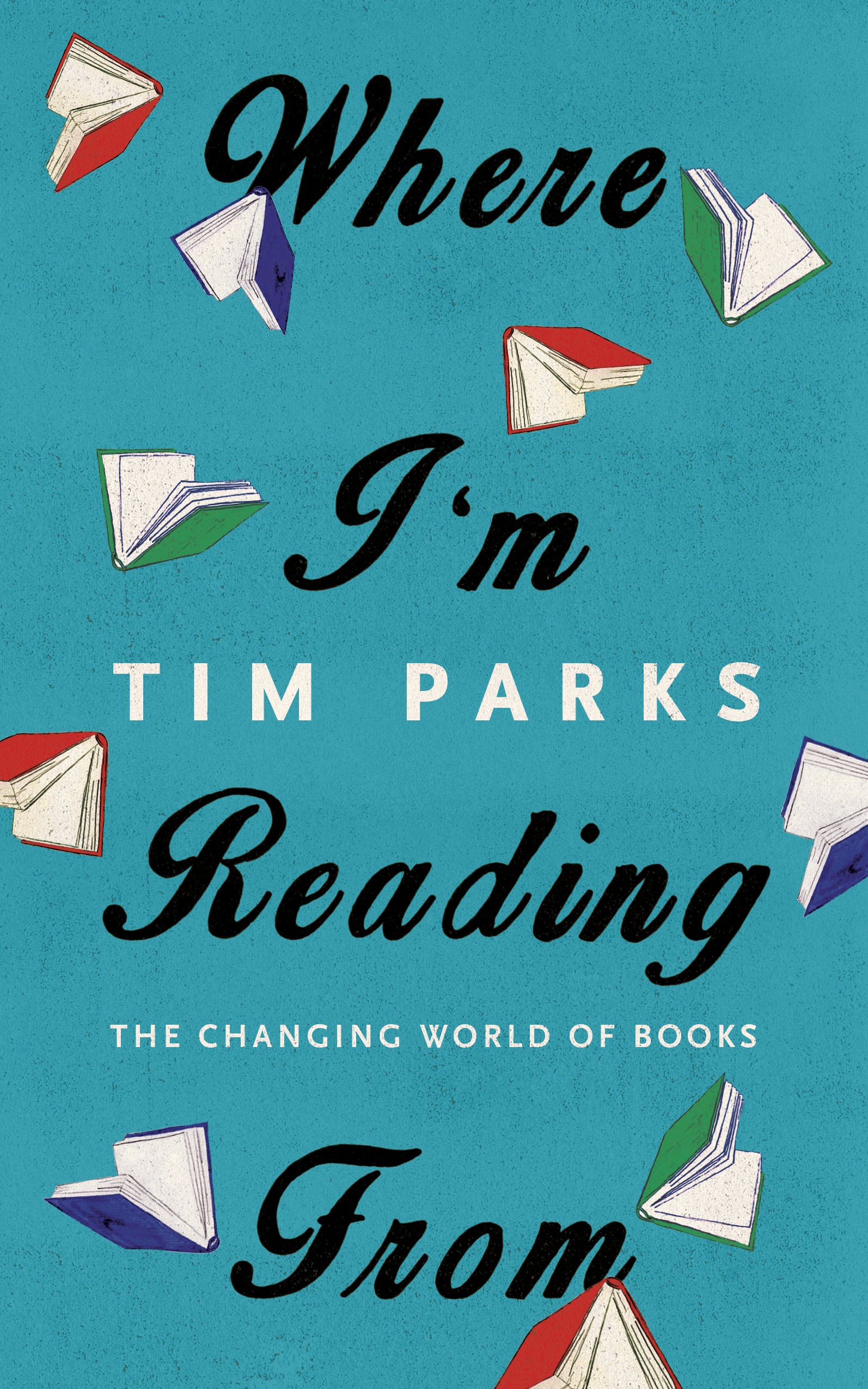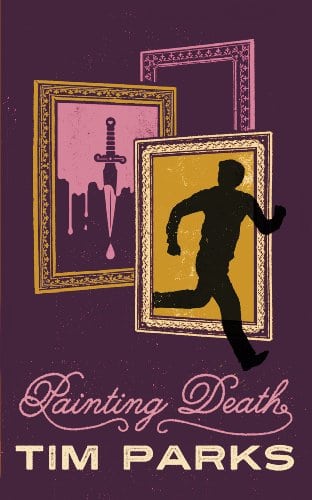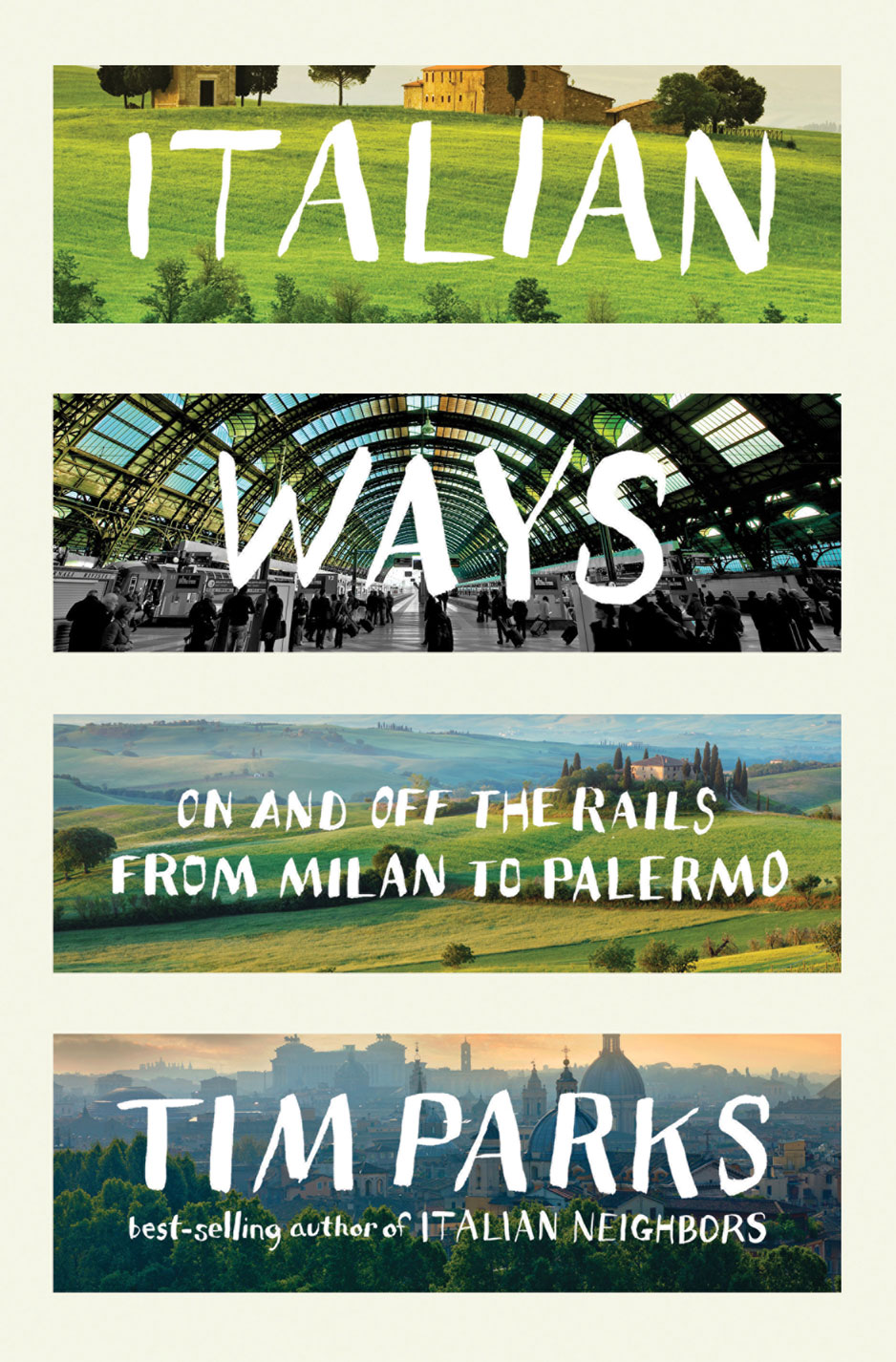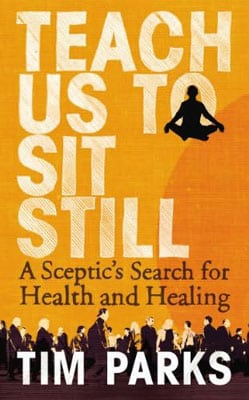Prajapati was alone. He didn’t even know whether he existed or not.
I too am alone. It’s fairly early in the morning. About 8.30. I am translating a book by an Italian writer called Roberto Calasso. The book is called Ka and amounts to a creative reconstruction of Indian mythology. The lines above are the first lines of the second chapter. This chapter deals with the god Prajapati, the oldest and first god, the Progenitor, and what is worrying me is that the Italian says, ‘Non sapeva neppure se esisteva o non esisteva.’ Should I have written: ‘He didn’t even know whether he existed or didn’t exist’? Why does that sound rather odd to me in English, but not in Italian? Was the repetition of a key verb like ‘exist’ important? How far does the English auxiliary ‘didn’t’ truly recall the verb it picks up? I can’t decide. And frankly, although alone, I am very aware of existing. I tend to fidget when there’s a problem, right hand thrust in my hair, toes twitching in sandals, because the day is hot, promises to be hotter. For a moment my body gets in the way of my mind. Then I decide that the best thing you can do with an intuition is go with it.
Prajapati was alone. He didn’t even know whether he existed or not. ‘So to speak’, iva. (As soon as one touches on something crucial, it’s as well to qualify what one has said with the particle iva, which doesn’t tie us down.)
‘So to speak’, iva. I like this word iva. I presume it’s Sanskrit. This is the kind of thing Calasso knows about. You have to marvel at people like Calasso who read Sanskrit. Anyway, long live the apologetic in the face of the inevitably approximate. Or tentative. Or downright hazardous. Every translation should have iva as a postscript Because now I’m very worried about the rather heavy weather I seem to have made of that parenthesis. The Italian was: ‘(Appena si tocca un punto decisivo è opportuno attenuare l’affermazione con quella particella, iva, che non vincola.)’ Punto decisivo. Perhaps I should have written ‘decisive’, and not ‘something crucial’. But is ‘decisive’ a true cognate of ‘decisivo’? Isn’t decisiveness a quality of people rather than issues? Then I’m just admiring the elegance, the easy rhythm of that Italian ‘attenuare l’affermazione’, which I can’t hope to emulate in my English, when I notice that, like many other words in the text decisivo has been underlined in crude blue fountain pen, and this causes me to burst out laughing. My son should learn the word iva too.
How can I explain? Yesterday evening my wife told me in great annoyance that my ten-year-old son Michele had an exam the following morning (today) and wasn’t even bothering to revise. I called for him to come and talk to me. A rather Dickensian scene. He explained that it was merely a question of the teacher’s announcing a verb in some particular tense, person and case, and him identifying those variables and writing them down together with the infinitive. This was something that could present absolutely no problem for him. I tossed a few questions at him, though I always feel a little uncertain myself in the face of irregular Italian subjunctives and past historics. He seemed confident enough. To impress my wife I said: ‘Take any page of this book, underline every verb you come across and explain the cases to me.’ Finding it open where I had left off, he studied this very page I am now translating. Then the phone rang, or there was someone at the door, and his work wasn’t checked. Now I see that he had underlined the adjective decisivo. As a verb! He must have thought it was the first person imperfect indicative of some improbable infinitive like decisere. As finivo means ‘I finished’, or ‘I used to finish’. Clearly he didn’t bother to read or understand the thing. But then Calasso isn’t easy.
I think of my son, who at this very moment will be starting this exam in his classroom. Let’s hope it’s not decisive. There. The word can be used for events, not just people! Yet I still feel the solution ‘something crucial’ was the right one. My son’s self-confidence is perhaps inherited. At which point the sunlight enters the room and falls across my computer screen. This is always infuriating. I can’t see anything. Since this room has no curtains I will have to pull the shutters to and work in artificial light for a couple of hours until the sun moves high enough for the light not to enter the room at such an oblique angle. Closing the shutters, I remind myself that references to the sun’s movement are a form of cultural inertia. But convenient. Like using ‘he’, ‘his’ or ‘him’ as pronouns for an ungendered ‘someone’, instead of the more ‘correct’ ‘he or she’. And I reflect that the text I am translating refers to an unimaginable moment before there was an earth or sun, before there was any gender to distinguish, a moment when there was only this god, Prajapati, who didn’t know if he existed (or didn’t exist). In fact, if I remember rightly from my earlier and lamentably cursory reading of the book, it is in this chapter that the sun, or rather the Dawn, the rising sun, is introduced as a figure of awakening, mental awakening, of that which, by pouring in light, engenders distinction, difference, the other. Hence a female figure, and an erotic figure. One might take issue with that ‘hence’, but there is a link, apparently, between enlightenment and eroticism. For this is also the chapter that introduces the whole business of the creation of sex, and thus inheritance, of the variety that makes my son as sure of himself as his progenitor.
But am I? Closing the shutters on a dazzling hillside I am suddenly alone with the ghostly light of my liquid crystal computer screen. I have to reach under my typing table to plug in a neon light overhead. Neon is a noble gas, whatever that means. Was it present before the world was formed, when Prajapati was alone? If my son gets a bad grade in his exam, will my wife be furious with him? And perhaps with me, too? My wife gets worked up about these things. Imagine if one could use the particle iva during the marriage service – till death us do part, so to speak. Which again reminds me that this is also the chapter that introduces death. Sex and death must go together to keep the numbers balanced. Iva. Again that little particle which does not tie us down. ‘Che non vincola’ is better than ‘which does not tie us down’. Terser, more reticent, it sits more snugly in a range of registers. But I could hardly have written, ‘which does not bind’ and left it at that: ‘it’s as well to qualify what one has said with the particle iva, which does not bind.’ Could I? Why do so many English verbs seem to require an object? Does this explain our military vocation?
A fly is knocking against the neon. The Vedic texts and the Buddhist tradition teach respect for even the most minute manifestations of creation. You kill some tiny thing and discover you have committed an appalling crime, wiped out a brahman or something. Actually I’m not quite sure if I have this right. But that’s the impression I got. The fly buzzes against the light, so that I have to make an effort to concentrate:
Prajapati was alone. He didn’t even know whether he existed or not. ‘So to speak’, iva. (As soon as one touches on something crucial, it’s as well to qualify what one has said with the particle iva, which doesn’t tie us down.) There was only the mind, manas. And what is peculiar about the mind is that it doesn’t know whether it exists or not. But it comes before everything else. There is nothing before the mind.
There, that was quick: four short sharp sentences with only minimum and fairly standard transformations of the sort you might make in any translation. ‘La mente ha questo di peculiare’ becomes ‘And what’s peculiar about the mind’, ‘esiste o non esiste’ has come down to ‘exists or not’ this time. For some reason I’m not even worried about that now. For ‘precede ogni altro’ I’ve chosen ‘comes before’ rather than the cognate ‘precedes’. I’ve noticed I have a habit of going for the Anglo-Saxon where I can. Is this a valuable intuition on my part, or just a bent I have? Perhaps I just want to make this text mine, swallow it up and regurgitate it in an entirely new form, the way these old gods always seemed to be swallowing up the whole world to spit it out again entirely changed, destroying to create – my lord Siva – sex and death?
But if I stop over all these imponderables I’ll never get anywhere. I must remind myself that one of the main reasons I’m doing this translation is to earn money to pay bills and feed my family. Attractive as it may sound, I don’t live in a situation where ‘there is only the mind.’ There are also electricity bills, phone bills, Kellogg’s cornflakes. The world of the other, the contingent other, is unbelievably abundant and solid around here. My children eat huge amounts of Kellogg’s cornflakes, which, in Italy, cost a fortune. If I was happy about those lines being easy after all it was because they mean a few bucks’ easy money. About 5000 lire a line if I’m not mistaken.
But then I notice that ‘what is peculiar’ about my son is that he has underlined the word peculiare as a verb. As if everything that ended in are was an infinitive of the first type, like arrivare, or amare. How is he getting on? He will be bent over his classroom desk barely a mile from here, with the teacher squeaking out the words on the blackboard. And why does this fly never settle on anything so I can kill it? Frankly I don’t give a damn about Buddhism and brahmans. Anyway I must have got that wrong. Indians must kill flies sometimes. All the time quite probably. Though not cows. But just because of all those cows there must be a multitude of flies. And hasn’t Calasso got it wrong when he says: ‘What is peculiar about the mind is that it doesn’t know whether it exists or not.’ That can’t be right. Nothing is more present to me, for better or worse, than my mind. Indeed it’s a burden. Wasn’t that the whole point of Descartes? I translate therefore I am.
Unless Calasso is just making himself the mouthpiece of a different tradition. And in fact I realise at this point that I should have put the last sentence there in inverted commas. ‘There is nothing before the mind.’ It’s a quote from somewhere or other. Calasso doesn’t announce that he’s quoting, he doesn’t have footnotes, but here and there he puts things in inverted commas and if you want you can look up a list of sources at the back of the book and check page and line number to find where he’s quoting from. Shall I? Turning to the last pages, I find that this is a line from the Aitareya Brahmana 2:40 (I presume that means chapter two, verse forty, like the Bible). And the Aitareya Brahmana, the glossary tells me, was reputedly written by Mahidasa Aitareya and is part of, or rather a canonical commentary on, the Rg Veda, which means ‘knowledge constituted in verse’.
Sometimes I do wonder when I look at these references. I mean, did the original Sanskrit of the Aitareya Brahmana really have the same feel as that simple English, ‘There is nothing before the mind’? Are the concepts ‘nothing’ and ‘mind’ and there is’ the same in Sanskrit? Or even remotely comparable? Who knows. That present tense is curious though. ‘There is nothing before the mind.’ As if one were speaking of hierarchy as much as chronology. The mind’s pre-eminence. Iva. It’s funny that IVA is the Italian abbreviation for Imposta sul valore aggiunto, a European sales and service tax that the British call VAT.
The fly settles on my keyboard and I try the business of clapping my hands just above it, which sometimes, by some odd law of physics, has the effect of drawing the fly up between the hands to be crushed there. But this one’s a canny fellow. Perhaps what I really ought to do is find some ‘official’ English translation of these texts, the Rg Veda, and quote from there. But that would be madness, and not only from the economic point of view. I tried it with Calasso’s last book, about the Greek myths, but many of the English translations of the classical texts Calasso quoted from were significantly different from his Italian version. He insisted he was right. He had worked directly from the originals. I decide to let ‘There is nothing before the mind’ stand, and I must admit I’m feeling more and more fascinated by that present tense, since it seems to change the sense of the whole sentence. Could it even mean ‘in the way of the mind’? For example: there is nothing we experience in front of, or as it were obscuring, the mind? That is an interesting concept, is it not? I’d hate to look up some English translation of the Sanskrit and find it said, ‘There was nothing before the mind.’ Mere chronology.
Prajapati. Mahidasa Aitareya. Calasso. Parks. Tongueless, Sanskrit, Italian, English. I think about this improbable chain of communication. Prajapati, the Progenitor. Surely his state of pure mind was enormously different from the buzz of my thoughts now, constantly distracted by that fly, wondering when the earth will have tilted enough for me to open the shutters and turn off the noble gas. Does the present tense, ‘the mind is before …’ perhaps suggest that Prajapati is always, that the origin is experienced over and over? The Vedic texts were collected in 1500 BC, thus, at four generations a century, there are something like 35X4 = 140 generations between Mahidasa Aitareya and myself. And anyway his was a commentary on earlier and older texts, impossibly distant now. Not that Calasso seems so very close either. He’s a squat man, handsome in his way, in his mid-fifties, with a rather odd, very attractive voice, at once breathy and deep. He smokes Gauloises. I think of him poring over these dead languages in his study in an old palazzo in Milan some two hundred kilometres from here. He treats me rather as a boy, a whippersnapper. Indeed I believe he sometimes refers to me as Pierino, a stock figure in Italian jokes, the cheeky schoolboy.
There is no lift up to his third-floor flat. The walls are dusty with first editions. I have Penguin Classics. I use a computer (which reminds me that I should copy yesterday’s work onto a backup disk). He writes in turquoise fountain pen on very thin, high-quality blue paper with a sort of rusty sheen to it. Just a dozen barely decipherable lines on each page, thousands and thousands of pages stacked away in file upon elegant file from parquet floor to stuccoed ceiling. Clearly there’s mania here, and preciousness, and vanity. Or perhaps he just finds he works best that way. Perhaps vanity is a help. It hasn’t destroyed me. The problem is not being vain, but being at the height of one’s vanity. And Calasso is, I think. I asked him once if he doesn’t sometimes lose one of those sheets of paper, or forget where he’s filed it. He said yes. He comes from a fairly well-to-do, intellectual Italian family. Apparently he was a child prodigy. I was born in Manchester, the son of an evangelical clergyman. At primary school I was captain of the football team. Sometimes, he says, he finds he’s already written the very passage he’s writing now. He thought it was only in his mind, still to be written, and instead he had already written it. Calasso chuckled merrily about that. And remembering his chuckle, actually hearing it (iva), sitting here at my desk and kicking off my sandals so that I can feel the cool of the ceramic floor, I realise that I am fascinated by models of the mind. By consciousness and representations of consciousness. Prajapati’s, Mahidasa Aitareya’s, Calasso’s, they are all hugely different minds from each other and from mine. I was never convinced by Leopold Bloom. And I sense that translation hag something to do with this, this constant attempt to grasp difference, to overcome it, if only for a few moments, ifonly on the slippery surface of a text, to appropriate, but also to expand, to be there in Calasso’s study, understanding Calasso understanding Mahidasa Aitareya understanding the Rg Veda understanding Prajapati. Did they all find flies as irritating as I do? Then the phone rings.
Somebody feels that, with the recent inflation in property prices, my house is now under-insured. I get up and go in the other room to switch on the answering machine. It is not time for a coffee yet. Coming back it takes me almost twenty minutes to add just five more lines:
Prajapati was alone. He didn’t even know whether he existed or not. ‘So to speak’, iva. (As soon as one touches on something crucial, it’s as well to qualify what one has said with the particle iva, which doesn’t tie us down.) There was only the mind, manas. And what is peculiar about the mind is that it doesn’t know whether it exists or not. But it comes before everything else. ‘There is nothing before the mind.’ Then, even prior to establishing whether it existed or not, the mind desired. It was constant, diffuse, undefined. Yet, as though drawn to something exotic, something belonging to another species of life, it desired what was definite and separate, what had shape. A self, atman – that was the name it used. And the mind imagined that self as having consistency.
I am really not happy with any of this. This abstract stuff sits so far from the genius of English. The best part of the book will be when we get down to the stories. That ‘prior’ niggles: ‘prior to establishing’, sounds awful. I hate the word ‘prior’. But what can I do? The Italian uses prima twice. ‘ “Non vi è nulla prima della mente.” E prima ancora di accertare se esisteva o no’ (at least my son didn’t underline prima, didn’t think it was the third person singular of an improbable primare). But can I repeat ‘before’? Can I write: ‘ “There is nothing before the mind.” And even before establishing’. I think not. Too clumsy. I shall have to stay with the somehow bureaucratic ‘prior’. And how odd it sounds to write, ‘the mind desired:’, without establishing what it desired. Without an object. Once again English wants to tie us down, so to speak, with an object. A verb like ‘desire’ seems incomplete without one. How is it that Italian seems so relaxed about splitting that appetence from what it seeks, about enjoying verbs without knowing what they’re up to? Can one desire without an object of desire? Here I can’t play the game I did with the object-less vincola, turning it into ‘tie us down’, where that first person plural pronoun really stands in for anybody and nobody, the trick of an object that remains entirely vague. For the whole point of this particular sentence seems to be the irony, or paradox, of Prajapati’s desiring when nothing else existed for him to desire. I ponder a while over the infelicities of what I have written, then follow an old maxim of mine established in the early days of translating manuals for quarrying equipment: when in doubt, hug the original, the way the girl in the folksong hugs her fairy husband who turns into a thousand different beasts and monsters before declaring his final and more favourable identity: ‘the mind desired.’
And how I loathe all these cognates! ‘Existed’ for esisteva, ‘desired’ for desiderò, ‘diffuse’ for diffusa, ‘undefined’ for indefinita, ‘exotic’ for esotico, ‘species’ for specie, ‘definite’ for definito, ‘separate’ for separato. When the text gets abstract, Anglo-Saxon caves in to Romance and the Latin cognate rules supreme. I look up ‘diffuse’ and ‘undefined’, first in the dictionary then the thesaurus, in the hope of discovering at least a choice to make, but there is nothing. ‘Widespread’ and ‘vague’ carry entirely different subtexts (‘the mind is vague’!). And speaking of vagueness, I should never have allowed my son to go to school this morning in his present state of preparation, or rather lack of it. He underlined both diffusa and indefinita. Two adjectives for verbs. I am beginning to dread his return at lunchtime. He will surely have failed. My wife will be upset. Calasso, I reflect, doesn’t have children. He doesn’t have a son. So these are not the kind of worries that will be hovering about his text. Unless, when he deals with a word like ‘progenitor’ it occurs to him precisely that he does not have children.
So the undefined yearns for the defined, the mind for substance; the same way perhaps that I feel eager to get to grips with this translation, to have it crystallise in English. Around ten o’clock is one of my most fertile moments. And I’m aware that Calasso is fascinated by that opposition, defined, undefined, by the way the whole of experience might be described in terms of the constant exchange between those two categories. Translation too is this, leaving the definition, the apparent definition, of the original, going through a state of indefinition, perhaps more original, in the Prajapati sense, than the original, a state where ideas are somehow held wordless, or almost, in my mind (I wish I could decide whether those ideas actually do become wordless) thence to reappear, gradually recompose themselves, from fuzz to clarity, or almost, in my own language. It’s a process perhaps not unlike that by which Captain Kirk is each evening of this month being beamed down in a repeat series on Italian TV, where he discovers, to my surprise, but not my son’s, that somewhere in the transporter he has changed languages, he now speaks fluent Italian, though oddly his lips move to American speech patterns. There is always something disconcerting about translations, an unsettling strangeness that survives from the original, a xenolith perhaps, or a trophy brought back from a conquered tribe, some object whose purpose nobody understands. In any event, I like this idea of the undefined becoming anxious to embrace the definite, perhaps in order to define its undefinedness. And how fascinating then that this embrace is called the ‘self’: self is a collision of diffuse consciousness and definition in a person, and hence, necessarily, not quite defined, not quite undefined – Calasso in his study, me in mine, which has now also become my son’s bedroom since he is growing too old to sleep with his sister and there is no other room in the house.
Do the Sanskrit atman, Calasso’s Italian sé and my English self all mean the same thing? The fly has now found where a small amount of apple-pie filling was dropped on the desk beside the keyboard. I can’t help snacking when I have my ten o’clock coffee. And if I said before that I was never impressed by Bloom – I mean by the representation of Bloom’s consciousness, his atman – it’s because it is too verbal, or rather, because it supposes Bloom verbalising everything. Whereas so much of consciousness is not verbalised. And if I choose this moment to tell you that, tell you that I think that, its because it occurs to me now how much is going on that I haven’t told you about as I translate this page of Calasso, how much that I haven’t verbalised at all. There’s the irritation of my skin sweating through my T-shirt against the seat back. There’s my brother’s elegiac painting of ice on the lake at Fontainebleau. It hangs below the neon light. My eye lifts to it now, to its extraordinary play of ice and grey and hinted pink, embers of sun made visible in a tiny column of smoke or mist which illuminates the whole, all framed in sharply polished brown. There’s the whirring of a cicala outside, which sits behind the buzzing of the fly like bass behind treble, occasionally amazing with sudden silences. And otherwise there are a thousand objects in the room. Intermittently I’m aware of them, but without verbalising. Do I even verbalise my concern for my son’s exam? Isn’t it rather there like a mood, a taste? How much of thought is words? No, these things it seems – I mean the verbal, the non-verbal – they cut across each other, rub off each other, like two currents forever meeting one below the other, one above the other, or the way brown river water from the air has still kept its colour far to sea in the endlessly repeated embrace of defined and undefined.
‘And the mind imagined that self as having consistency.’ The Italian consistenza has only one sense, that which describes a substance, not the additional English sense of constancy through time, constancy of purpose. Yet I see no other way of translating this. In any event, the key word here perhaps is ‘imagined’: ‘the mind imagined’. But ‘imagined’ in the sense of ‘falsely supposed’? That is: ‘the self didn’t really have consistency, but the mind supposed it so’? Thus the mind in error? Or ‘imagined’ in the sense, ‘the mind brought the self into being with this consistency, willed it thus?’ The mind as creative power. There are times, I feel, when my translation is as unstable as my son’s grasp of grammar. I’m sure I’ll change it all when I revise.
I clap my hands again. Again the fly escapes. Every text, original or translation, is carved, conjured out of this precariousness: a thousand sensations and pressures, a surface buzz of words – consciousness – and then the extraordinary purposefulness of the mind, seeking, desiring definition, in the order of words on a page, something it can imagine as having consistency. Would I have translated this paragraph exactly the same a year ago, a year hence? Would the syntax have tightened a little on a winter’s day. Did the ringing phone, my son’s exam, turn a definite article to indefinite? What if they paid me better, if I could afford to spend another hour over this sentence or that? Imponderables. Calasso himself has the irritating habit of sending me corrections to passages I have already translated, some obvious enough, but some quite inexplicable, more to do with the reflection of light off a glass cupboard perhaps than any flaw in the text.
Light. I go to the window and throw open the shutters. No defining dazzle floods in. Amazingly, everything has changed. Leaden clouds are thickening with thunder. I have visions of a power cut wiping out the memory. Could I translate the paragraph again, exactly as it is? Quick: F9. Save the morning’s work. Then it occurs to me I could phone Calasso and ask him whether, when he discovered he was writing the same passage twice, it was indeed the same, the very same words, or significantly different. What did his chuckle mean, more than a year ago now? Was it his awareness that the same passage was not the same at all: the initiate’s secret that much of his text is quite arbitrary? But you don’t just phone Calasso for a chat. Calasso is a busy mortal man. His time is preciously portioned out for his various projects. I feel I must finish at least this paragraph before treating myself to coffee.
Prajapati was alone. He didn’t even know whether he existed or not. ‘So to speak’, iva. (As soon as one touches on something crucial, it’s as well to qualify what one has said with the particle iva, which doesn’t tie us down.) There was only the mind, manas. And what is peculiar about the mind is that it doesn’t know whether it exists or not. But it comes before everything else. ‘There is nothing before the mind.’ Then, even prior to establishing whether it existed or not, the mind desired. It was constant, diffuse, undefined. Yet, as though drawn to something exotic, something belonging to another species of life, it desired what was definite and separate, what had shape. A self, atman – that was the name it used. And the mind imagined that self as having consistency. Thinking, the mind grew red hot. It saw thirty-six thousand fires flare up, made of mind, made with mind. Suspended above the fires were thirty-six thousand cups, and these too were made of mind.
Fires, cups, thirty-six thousand: how well these extravagant images suggest the redhot mind. The fruit of long research no doubt Obscure references, the psyche’s mad abundance. Calasso can only write a limited number of these books, I tell myself. They require so much work. And they will all bear his unmistakable imprint, the grain of his atman, the particular pattern in which his consciousness crystallises out. Whereas anybody with a good knowledge of English and Italian could hazard a translation. Could it be that mine here is only the first in a long chain of other attempts? Thirty-six thousand even. Why not? What if this passage became a set text for some exam or other? And I imagine each individual translator beset by flies and phonecalls and fickle weather, or paralysed in public examination halls, all floundering through a wash of non-verbal material, then a maze of syntactical and lexical alternatives, towards the mirage of the definitive version …
In the hope that my translation of this passage was and will remain the best, I revised it some months after writing that initial draft (quoted above) on a train journey from Reggio Calabria to Bari. An editor is yet to have his say. Then Calasso will make an objection or two. This article, I might add, begun the morning my son failed his rest on Italian verbs, was entirely rewritten between reading two chapters of Siri Nergaard’s excellent anthology La teoria della traduzione nella storia while sprawled beneath an orange-and-green sunshade on an Adriatic beach. Everything around me that day was scorching hot, as were the thousand cups of coffee I have consumed in translating the 527 pages of Ka, one of five books written, miraculously, by the Italian author and publisher, Roberto Calasso.





